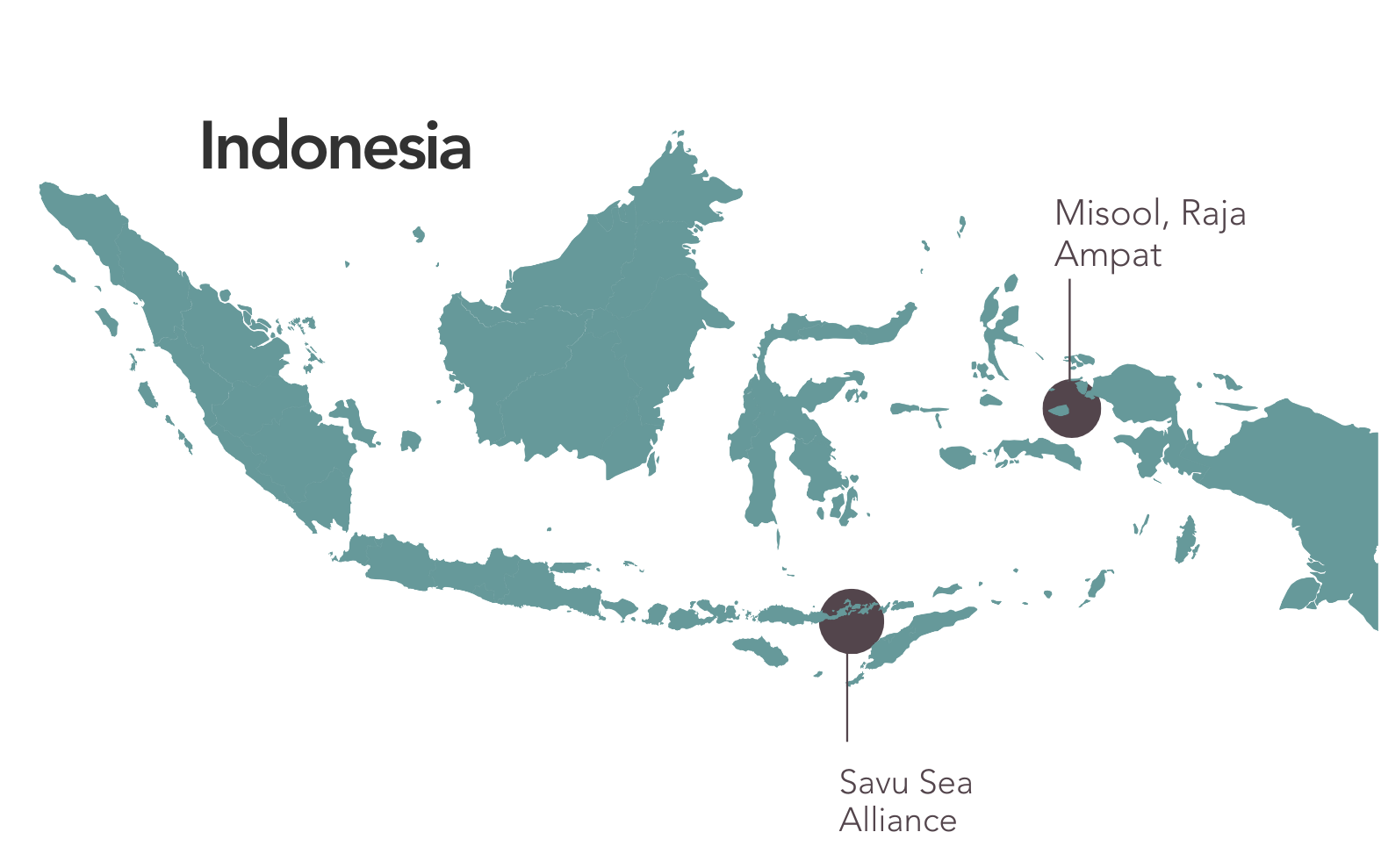Misool Foundation works across remote Indonesia
Misool Foundation's home base is in Raja Ampat, Indonesia, at the very heart of the Coral Triangle and focused on the future of the most biodiverse reefs in the world. The Foundation has expanded its efforts to include critical conservation areas across the Indonesian archipelago, developing programs and campaigns focused on safeguarding threatened species and important marine habitats. Misool Foundation’s is headquartered in Sorong, West Papua.
misool, raja ampat, indonesia
Raja Ampat’s reefs lie at the epicentre of marine biodiversity, in the heart of the Coral Triangle. The region is home to 75% of the world’s known coral species, and close to 1,500 species of fish. In an area the size of two football fields, scientists discovered more than six times as many coral species as live in the entire Caribbean Sea.
Due to the remote location and low population density of the region, the reefs remain remarkably intact. The reefs are of enormous scientific importance for a multitude of reasons, including their documented and unusual resilience to fluctuations in sea temperature. Ocean currents called the Indonesian Through-flow wash coral polyps from Raja Ampat westwards, effectively repopulating and sustaining much of the reefs of Southeast Asia and the Coral Triangle. As ocean temperatures rise due to climate change, these regenerative coral polyps become more and more important.
The surge in consumption of shark fin soup in the 1990s is directly linked to the degradation of specific reef systems in South East Misool, Raja Ampat. Removing sharks, which are apex predators, gravely destabilizes the ecosystem. All 14 species of shark targeted globally for the shark fin soup trade are now threatened with extinction. The resulting imbalance jeopardizes all levels of the ecosystem, including bonito tuna, which is a vital protein source for the people of Raja Ampat.
Since Misool established the first No-Take Zone (NTZ) in 2005, reef shark populations and fish biomass have recovered rapidly. However, as the richness of the reefs inside the NTZ increases, the pressure from illegal fishing also increases. Misool Foundation’s suite of conservation initiatives addresses these urgent issues.
Key projects: raja ampat
misool community education project


